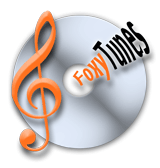Linux In The New Year...part one
The development of desktop Linux in 2006 has set the stage for new market
growth in 2007. A number of significant milestones were reached that promise to continue to move the Linux desktop ahead in 2007.
KVM (for Kernel-based Virtual Machine) is a full virtualization solution for Linux on x86 hardware containing virtualization extensions (Intel VT or AMD-V). It consists of a loadable kernel module, kvm.ko, that provides the core virtualization infrastructure and a processor specific module, kvm-intel.ko or kvm-amd.ko. The kernel component of KVM is included in mainline Linux, as of 2.6.20.
Fluendo, leader in GNU/Linux and Unix multimedia solutions, is expanding its offerings with the general availability of a wide range of codecs for the GNU/Linux and Solaris desktop and server systems.
Fluendo is a company specialising in delivering products and consulting services focusing on UNIX and GNU/Linux multimedia. Fluendo employs several of the central developers of the GStreamer multimedia framework, which is quickly establishing itself as the de-facto standard multimedia framework for GNU/Linux and UNIX systems.
Fluendo, a leader in GNU/Linux and Unix multimedia solutions, recently announced that they are making available plug-ins to handle Windows Media Audio, Video, and MMS streaming protocol, MPEG-2 video decoding, MPEG-4 Part 2 video decoding, ASF container format demuxing, MPEG-2 Program and Transport Stream container format demuxing, MPEG-4 ISO container format demuxing and MP3 audio. Further CODECs are planned for release by Fluendo over the course of 2007.
Version 2.0 of the popular Web browser was released in October of 2006, with the first update ready in December. By the end of last year, Firefox had more than 10 percent of the browser marker.
last August, RealNetworks announced it would deliver state-of-the-art multimedia capabilities on the Linux desktop. Novell will distribute Real's upgraded RealPlayer, which will support Windows Media formats and Helix Banshee music player, as part of its SUSE Linux Enterprise Desktop 10.
While Windows is the dominant desktop computing platform, it isn't the only game in town. Millions of people all over the world live every day without using "any" Windows-based products. It's a choice, and so is using Windows & OSX.

